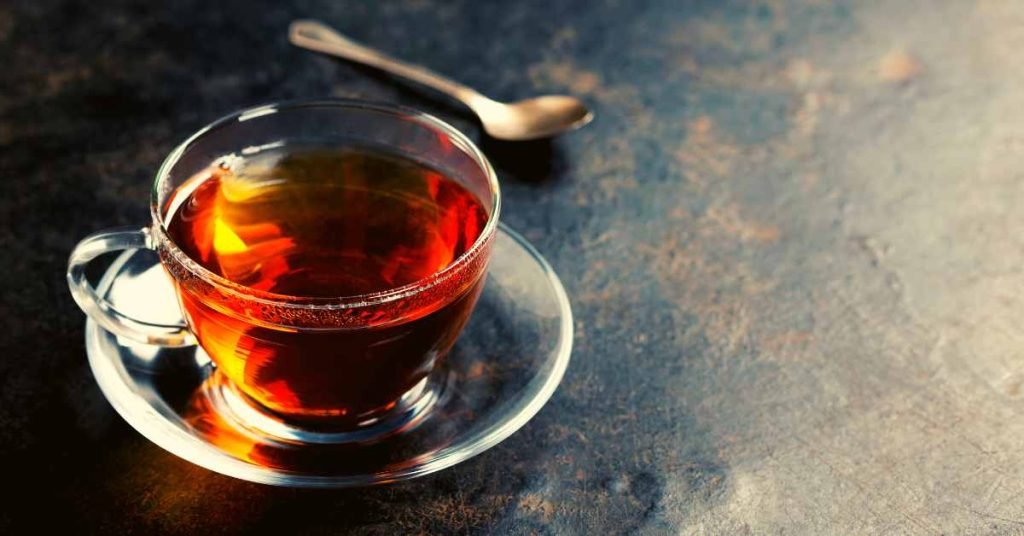It is no longer necessary to point out green tea as a great drink, with many properties.
Even so, among those it has, some generate certain contradictions. For example, what happens with green tea and gastritis? That is something we will try to find out in this article.
Praise and praise for green tea never cease to be the order of the day and also never enough. There is probably no beverage more revered in the world, both for its taste and for its immense properties.
No one disputes this miraculous and greenish infusion, but it is also true that some points are not entirely clear about its benefits.
For example, what happens between green tea and gastritis? Some versions indicate that it can have positive effects, while others endorse its non-consumption by those who usually suffer from chronic gastritis.
So, which side of the argument should we choose? That is what we will try to find out below.
Why Could Green Tea Be Good to Treat Gastritis?

One of the existing research that establishes a relationship between green tea and gastritis was conducted in China and indicates that green tea could become a great protective agent against chronic gastritis and other kinds of problems of similar nature. Even stomach cancer.
Another study, this one conducted at the University of Maryland (United States), indicated that foods rich in flavonoids could play an interesting role in preventing and curing gastritis and ulcers, especially those generated by the bacteria known as H Pylori, which would inhibit.
Why Could It Be Bad?
Fundamentally, only one issue: its caffeine content. Although the caffeine content of green tea is not the same as that of red or black tea, it still contains this substance, which can cause stomach irritation and is not usually recommended for those suffering from gastritis.
Conclusions
In general terms, it could be said that green tea is good against gastritis.
This is demonstrated by two studies, one that speaks of its protective effect against chronic gastritis and another that speaks clearly of its ability to help inhibit gastritis and ulcers caused by bacteria such as H Pylori.

The only ones that may be harmed are those who are irritable in the stomach, have hypertension, or have any other problem related to this substance.
Good Teas and Infusions to Combat Gastritis
Chamomile infusion. It is the herb that helps fight the most common gastritis problems. It is completely beneficial for the stomach, as it helps to soothe typical heartburn and also contributes to deflation. It is always to be taken into account.
Rooibos infusion. Unlike tea, rooibos has no caffeine. And not only that: it is very positive in terms of digestion. It can help you without problems and you will take it daily because it also fights diarrhea and all kinds of gastric system inconveniences.
Rice water. Some boiled rice water is one of the best infusions you can take when you suffer from gastritis. You need that kind of starch to appease a little bit of gastritis. And this preparation will give it to you.
Teas and Infusions You Should NOT Drink If You Have Gastritis

Black tea. Like any of the more caffeine-rich teas, such as pu-erh or oolong, it is not at all recommended for gastritis. The consumption of this substance will only generate irritation in the gastric mucosa and will complicate things.
Any type of coffee. It is the number one forbidden infusion when suffering from gastritis. Because of its tannins, roasting, and, of course, its caffeine, it is best to avoid it anyway.
Peppermint tea. Although you may think that mint will cool your stomach when you have gastritis, the truth is that it can cause irritation in the area and is best avoided.
Medical Disclaimer
Itsnevernotteatime.com cannot and does not contain medical/health advice. The medical/health information is provided for general and educational purposes only and is not a substitute for professional advice.
Statements made on this website regarding the herbal and natural products offered on this website have not been evaluated by the food and drug administration as the FDA does not evaluate or test herbs. This information has not been evaluated by the US Food and Drug Administration, nor has it gone through the rigorous double-blind studies required before a particular product can be deemed truly beneficial or potentially dangerous and prescribed in the treatment of any condition or disease.
It is not meant to substitute for medical advice or diagnosis provided by your physician or other medical professionals. Do not use this information to diagnose, treat or cure any illness or health condition.
Accordingly, before taking any actions based upon such information, we encourage you to consult with the appropriate professionals. We do not provide any kind of medical/health advice. The use or reliance of any information contained on this site is solely at your own risk.
Please visit this FDA website to clear any confusions you have about food and dietary products and their ingredients:
Please visit this FDA website to clear any confusions you have about food and dietary products and their ingredients: https://www.fda.gov/Food/DietarySupplements/default.htm
MEDICAL DISCLAIMER
Itsnevernotteatime.com cannot and does not contain medical/health advice. The medical/health information is provided for general and educational purposes only and is not a substitute for professional advice.




